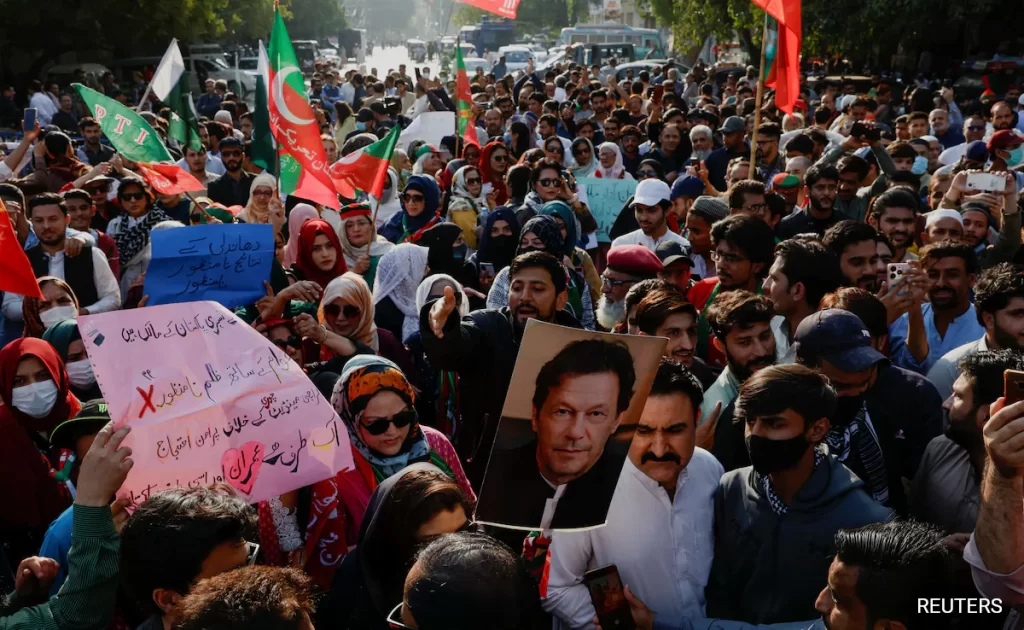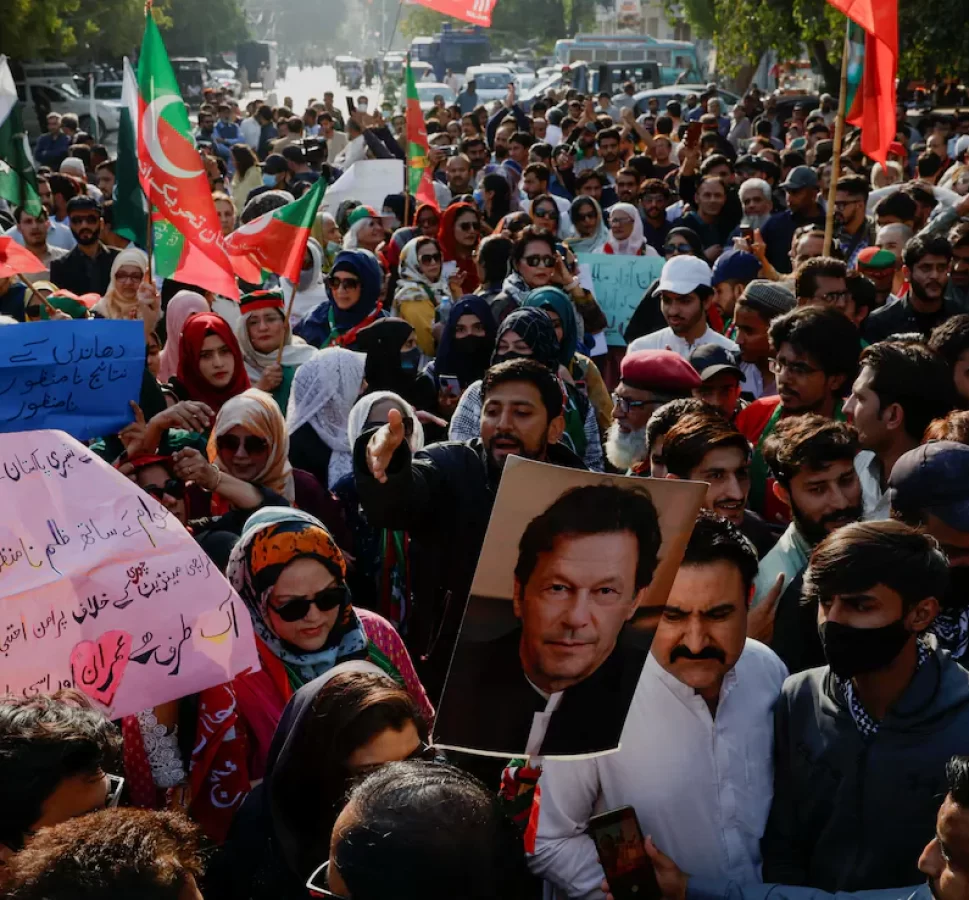
Ex-PM Imran Khan has asked the IMF to factor in alleged rigging in recent elections. But that’s dangerous for Pakistan, economists say.
Islamabad, Pakistan — As Pakistan grapples with the aftermath of controversial elections, political chaos is threatening to cloud its $3bn deal with the International Monetary Fund (IMF), which analysts say is key to the country’s economic stability.
On Thursday, the global lender said Pakistan’s interim government had “maintained” economic stability. The IMF’s communications chief, Julie Kozack, said the interim government had managed to achieve fiscal targets while also “protecting” the social safety net.
“We look forward to working with the new government on policies to ensure macroeconomic stability and prosperity for all of Pakistan’s citizens,” Kozack said.
But the comments from the IMF come at a time when Pakistan is about to swear in a new government after this month’s general election, which has been marred by widespread allegations of rigging and manipulation.
Former Prime Minister Imran Khan, the founder of his Pakistan Tehreek-e-Insaf (PTI) party, drew a link between these allegations and the IMF loan in a statement from prison, asking the international body to carry out an audit of the elections before proceeding with the deal.
“Imran Khan will issue a letter to IMF. The charter of IMF, EU and other organisations stipulates that they can function or provide loan to a country only if there’s good governance,” Khan’s lawyer and Senator Ali Zafar told journalists after meeting the ex-premier at Rawalpindi’s Adiala Jail on Thursday. Khan is in jail over a series of convictions in cases involving a range of charges — from corruption to leaking secret documents.
Pakistan signed a nine-month standby agreement with the IMF last year. It will expire early next month, and securing another long-term plan is seen as a priority for the next government.
The February 8 elections in Pakistan saw a split mandate with PTI-backed candidates winning 93 seats in the National Assembly while the party’s main rivals, the Pakistan Muslim League-Nawaz (PMLN) and Pakistan Peoples Party (PPP), secured 75 and 54 seats, respectively.
The PMLN, PPP and smaller allies have agreed to form a coalition government, whose members are expected to take oaths next week.
The PTI was denied its electoral symbol — a cricket bat — weeks before the elections and was forced to field candidates as independents. The party also faced a nationwide crackdown that impeded its campaign but still beat the odds when its candidates won the highest number of seats. Khan was removed from office in 2022 after a no-confidence motion. Many analysts believe he came to power in 2018 with the support of Pakistan’s powerful military establishment, but they eventually fell out.
The PTI has alleged widespread manipulation in the counting and results and has said it will continue both street protests and legal cases to reclaim what it insists is a stolen mandate.
Lahore-based economist Hina Shaikh, however, said this political uncertainty wouldn’t affect the IMF’s approach. With the IMF already signalling its willingness to work with the new government, “any effort by Khan would not bear any fruit,” she said.
“Firstly, it would have no official ramifications, and secondly, it would not be in the interest of Pakistan nor IMF to end financial support. Pakistan has several payments due in the next two months and needs IMF support to stay afloat and continue leveraging other sources of revenue,” the economist told Al Jazeera.
Extending the IMF deal is critical for Pakistan, economists said. A failure on the part of the government to tackle the country’s massive economic challenges could send the nation of 241 million people into a default.
Pakistan’s foreign reserves currently stand at about $8bn, just enough to cover eight weeks of imports. The Pakistani rupee has lost more than 50 percent of its value against the US dollar over the past two years.
Inflation, which hit a record high of almost 38 percent last year, is currently nearly 30 percent, and high tariffs for electricity and gas along with other essential commodities are draining household incomes.
The looming debt obligations mean that Pakistan must be able to negotiate a new plan with the IMF as soon as the new government comes in. A recent report by Tabadlab, an Islamabad-based think tank, called Pakistan’s debt obligations “unsustainable”, saying its total external and internal debt totals up to $271bn.
A United States Institute of Peace report from last year concluded that the country needs to “repay $77.5 billion in external debt” by June 2026. “For a $350 billion economy, this is a hefty burden,” the report stated.
Pakistan’s central bank says it needs more than $6bn to service its debt obligations by June 30, the end of current fiscal year.
Emphasising the need for a continuation of the IMF loan programme, Uzair Younus, principal at the US-based advisory firm The Asia Group, said Pakistan’s economy cannot afford politics when it comes to the next IMF deal.
“Any delays due to politics or a staring contest between the next finance minister and the IMF is likely to rapidly fuel economic uncertainty, pressure on the currency and heightened default risk,” he told Al Jazeera.






